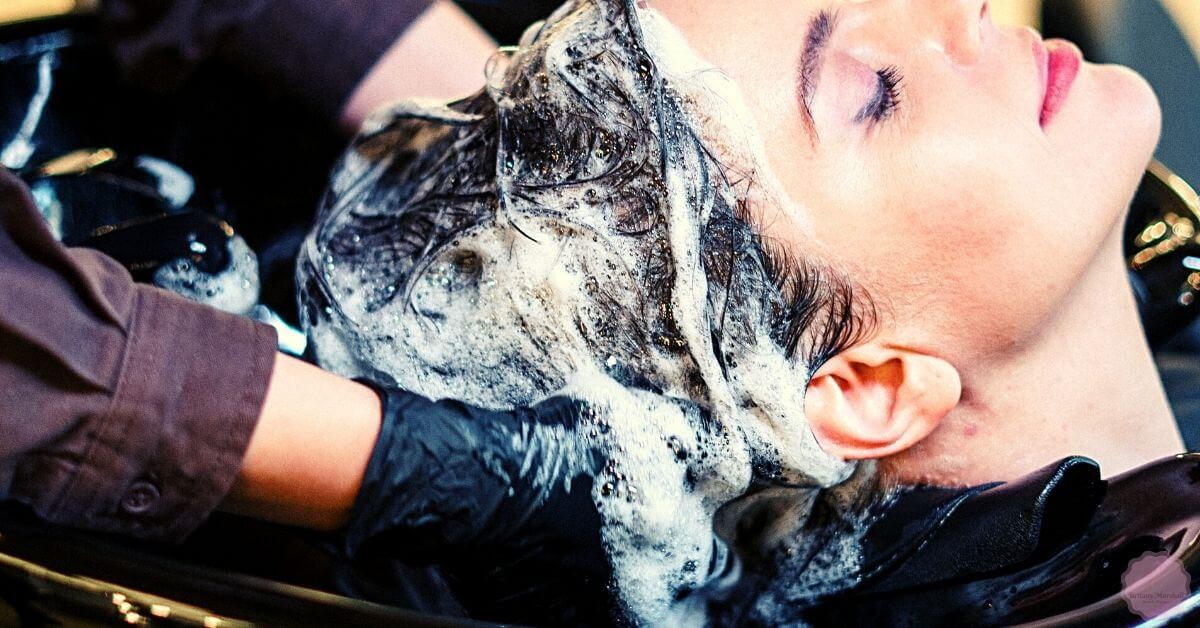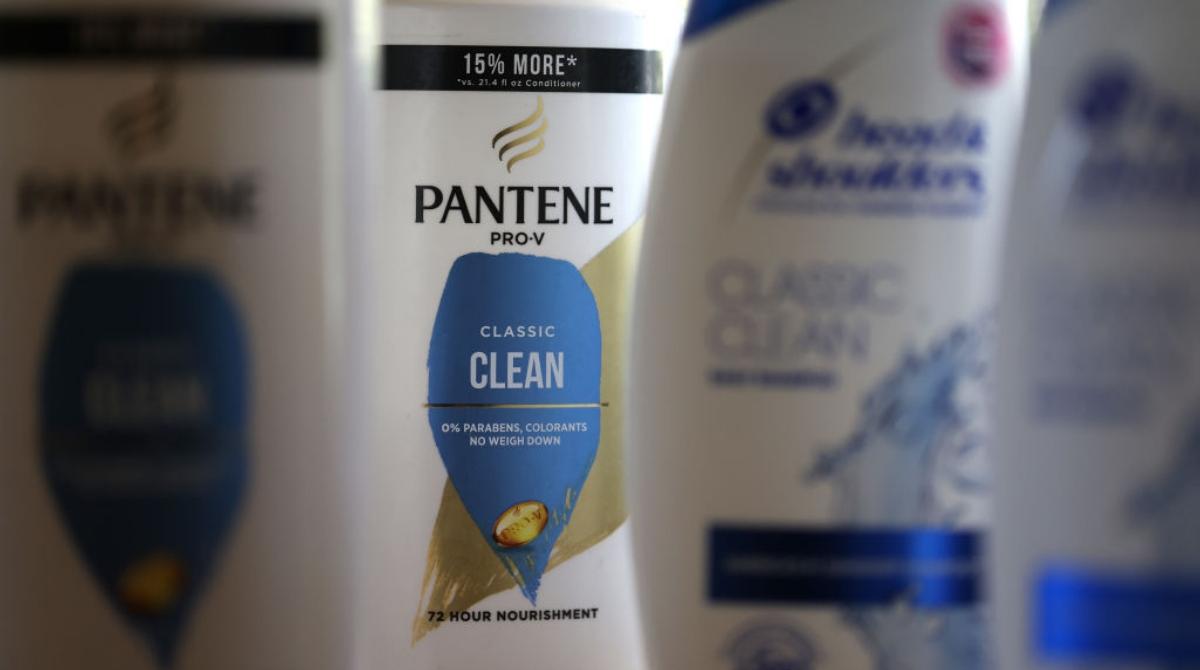Table Of Content

It’s a cornerstone of Pantene’s formula, reflecting the brand’s commitment to hair health. However, Pantene does make specific types of hair products for different hair types. While there’s a range of curly hair (3a-4c), we’re focusing on 4a, 4b, and 4c hair types today.
Experts Break Down Pantene's Essential Botanicals Volumizing Shampoo and Conditioner Ingredients - Allure
Experts Break Down Pantene's Essential Botanicals Volumizing Shampoo and Conditioner Ingredients.
Posted: Tue, 15 Aug 2023 19:19:36 GMT [source]
Is Pantene Shampoo Bad For Your Hair 2024?
Pantene shampoos contain sulfates, which are known for their cleansing properties. However, sulfates can also strip the natural oils from the hair and scalp, leading to dryness and potential damage. This can be particularly problematic for individuals with already dry or sensitive hair. Pantene also sells a variety of products to pair with this shampoo and conditioner that are made to be used on curly hair to keep it healthy and as curly as possible.

Address List
Ultimately, choosing the right product for your hair type depends on understanding what works with your body’s chemistry and assessing current lifestyle habits accordingly. To fully understand the debate surrounding Pantene, it’s essential to look at its history. Pantene’s journey began in the 1940s, with its first product inspired by the ingredient panthenol. Over the years, Pantene has evolved, becoming a staple in households worldwide. Known for its signature Pro-V formula, Pantene has positioned itself as a brand that offers salon-quality results at an affordable price.
Professional Perspectives
Using harmful products on your hair every day or week will cause your hair to become dry, and brittle, and not handle color treatments or styling treatments very well. They are essentially responsible for creating the lather that helps clean your hair. But they are also powerful stripping agents and are not recommended for color-treated or damaged hair.
There is no definitive answer whether Pantene is bad for your hair. Some consumers have had negative experiences, while many others find Pantene products work well for their hair care needs. Moreover, expert opinion is divided on the use of silicones in hair products. As such, it is important for consumers to make informed choices, taking into consideration their hair type and the overall health of their hair.
However, Pantene’s widespread popularity hasn’t shielded it from criticism. As we explore its past, we gain insight into why Pantene became a subject of contention in the beauty industry and among consumers. Some people believe that using Pantene will make your hair thin which isn’t true at all. Thinning of the hair is caused by age, genetics, and medical conditions. Tetrasodium EDTA binds to heavy metals and prevents their breakdown, which can lead to pollution and is believed to be harmful to organisms in aquatic environments. Pantene contains tetrasodium EDTA which has been found to have negative environmental impacts, particularly when it enters the water supply.
However, Pantene is known by many for making hair heavy, unmanageable, and hard to style because it tends to leave a wavy substance behind even though they don’t have wax in them. If you find that Pantene products leave your hair waxy, use a clarifying shampoo or other gentle, clarifying products like apple cider vinegar. Most ingredients in Pantene shampoos that are generally considered harmful are not highly concentrated, so they likely won’t do anything bad, especially if you rinse out the shampoo quickly. It stands as one of the most reliable and well-formulated products on the market. For many people it is a brand they will remain loyal to for many years.
This might make hair appear healthier in the short-term, but over time, the silicone barrier could prevent moisture, protein, and other beneficial nutrients from penetrating the hair shaft. Essentially, decision about Pantene’s hair care product selection should be based on personal experiences and scientific facts, rather than hearsay or misinformation. Seeking advice from a professional in hair care is always a prudent step to aptly determine your haircare requirements and select suitable products. All Pantene products adhere to strict quality control measures to ensure safety, purity, and effectiveness. Thorough testing is carried out to evaluate and substantiate these factors. Every Pantene shampoo and conditioner undergoes a series of assessments for attributes such as pH, viscosity, foaming properties, and conditioning performance, among others.
While it’s true that silicones and waxes can cause buildup if not adequately washed out, this may not necessarily result in long-term hair damage. When compared with other brands, Pantene often stands out for its affordability and accessibility. In terms of ingredient quality and effectiveness, Pantene is generally on par with other mass-market haircare products. Higher-end brands may offer more specialized formulas, often sulfate-free or with added natural ingredients, catering to specific hair needs. Pantene shampoos are made with low-quality synthetic ingredients that can strip the natural oils from your hair and scalp, leaving you with dry and frizzy hair that isn’t easy to manage.
Is Pantene Bad for Your Hair? All About the Claims - Green Matters
Is Pantene Bad for Your Hair? All About the Claims.
Posted: Wed, 16 Aug 2023 07:00:00 GMT [source]
Pantene products, even the ones for curly hair, have good and bad ingredients. Here’s an ingredient breakdown to help you decide whether the products are worth a try. Synthetic ingredients tend to remove the natural oils on your scalp, which causes dull hair that’s prone to damage and split ends. Many Pantene shampoos contain silicone which coats your hair shafts to make the hair appear shiny and smooth. However, silicone can build up and lead to clogged hair follicles, a common cause of hair loss and scalp skin issues.
The main ingredient in Pantene products is polyethene glycol (PEG), which is a synthetic compound that can be contaminated with carcinogens like 1,4-dioxane. PEG is also used as an emulsifier, which means it can help other ingredients mix together more easily. Many stylists say that Pantene coats the hair with plastic, or makes it fall out and unfortunately is just not true. Find out for yourself by comparing the ingredients on Pantene shampoo and a typical salon shampoo and you will notice there is seriously no difference at all.
One of the biggest benefits of using Pantene is that its moisturizing agents help to hydrate the hair and restore its natural moisture balance, leaving it soft and smooth. This can be particularly beneficial for those with dry or damaged hair, as it can help to improve the overall health and appearance of the hair. Formaldehyde donors, widely used in Pantene products, can potentially dry out your hair and cause irritation. This ingredient is controversial due to possible allergic reactions and sensitivities to its presence in hair care products. A proliferation of assertions online imply Pantene’s products might be detrimental to hair health.

Keep in mind that your hair’s reaction to the change in products used may vary, so you may not know what Pantene products do to your hair for at least a few weeks. For example, Pantene sells shampoos that are designed to hydrate/add moisture, clean and clarify, repair the damage, protect from damage, add volume, keep hair smooth and sleek, and more. To learn more about Pantene shampoo and what products will be best for your hair type, keep reading.
While this chemical has good intentions, it also does bad things to the scalp and hair. Despite disproving the ridiculous allegations about Pantene, we’re not going to say that it’s 100% safe and effective. First, cosmetic chemists have clarified that there are no ingredients in Pantene that are flammable in the manner that the stylist was describing.
Ever since its breakthrough and after garnering good reviews from plenty of users, Pantene continued to formulate more hair care products. Each is formulated with different ingredients and for different purposes. So we can say the shampoo is drying, but we don’t think that would be a similar case for the Pantene conditioner. These curls form ringlets, though the shape of the curl depends on the tightness of the spiral. Curlier hair has a harder time getting natural scalp oils (sebum) to the tips of the hair, so split ends and frizz can be common. This hair is also more delicate when wet and may need softer towels and tools to help maintain and manage the curl.
However, these products may contain dimethicone, parabens, various artificial fragrances, and preservatives like methylchloroisothiazolinone and methylisothiazolinone. Although most Pantene products can safely be used on your hair, some products contain benzene, which can cause various types of cancer. Luckily, this ingredient was added to various products on accident, so Pantene products typically don’t have it.

No comments:
Post a Comment